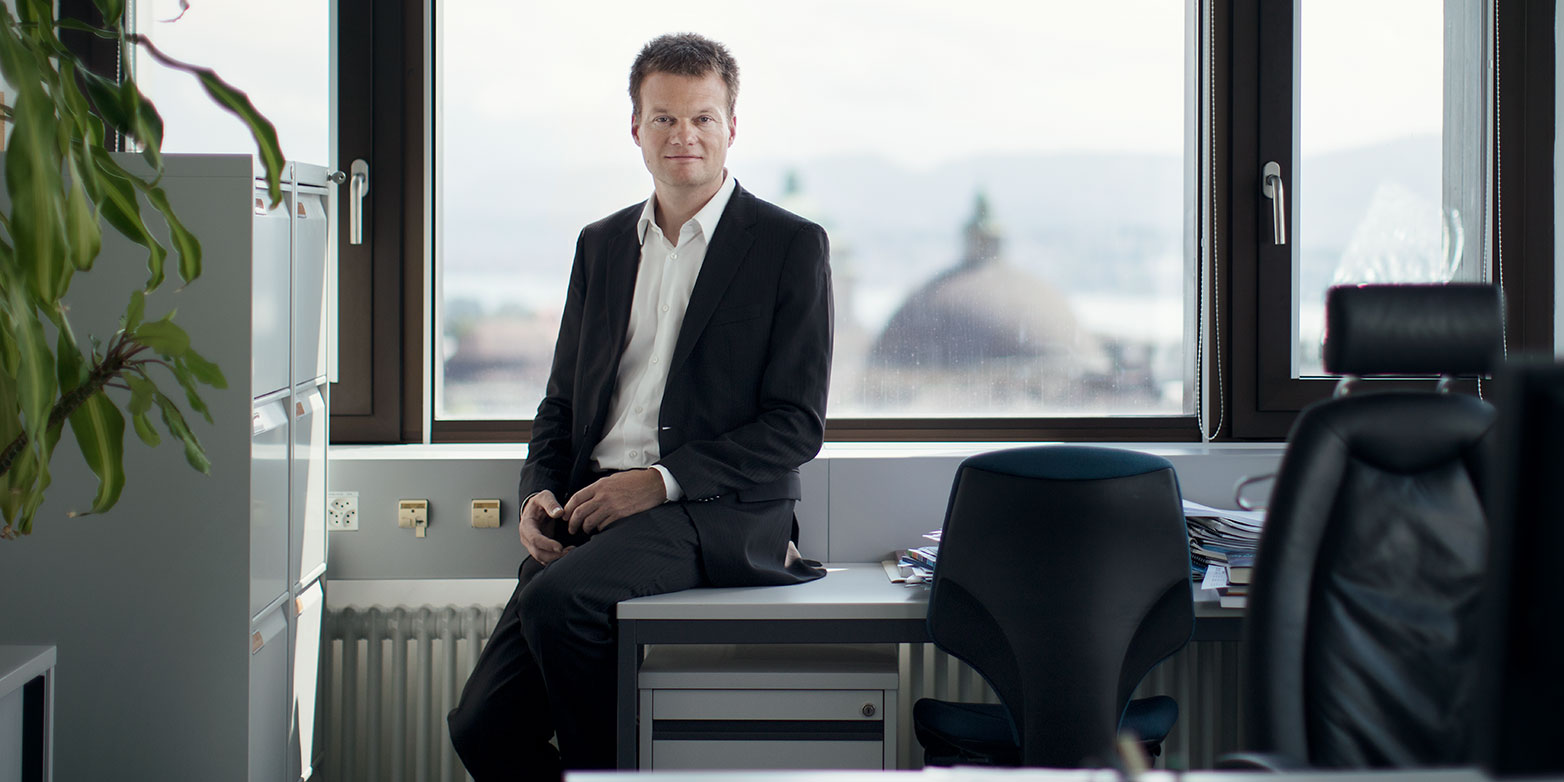“ETH is taking the students’ demands seriously”
The Zurich Climate Strike Student Working Group is calling for universities to tackle climate change and accelerate the shift to sustainability. In this interview, Reto Knutti, ETH Delegate for Sustainability, explains how ETH Zurich supports the students’ initiative and how they can get involved.

Reto Knutti, the students joining the climate strike presented a comprehensive list of 30 demands, some of them ambitious. What is ETH Zurich’s response?
Reto Knutti: As a university, we are pleased to see young people getting involved in measures to combat climate change. That’s why we have provided students with a detailed written statement on our position and our commitment to sustainability and offered them an opportunity to discuss their demands and our response.
However, your statement does not address all of the key demands – for example, the declaration of a climate emergency …
We share the students’ vision of a sustainable society, even if we are pursuing different approaches when it comes to achieving some of the goals laid out in the demands. The students are demanding a general ban on research into fossil fuels as well as compulsory courses on climate change, among other things. One of the most important achievements of our enlightened society is freedom of teaching and research. From our point of view, bans and restrictions on the freedom of teaching and research are counter-productive and contradict ETH’s culture of empowerment. Moreover, it is not a university’s responsibility to declare a climate crisis – this should come from politicians, if anyone.
So what is your responsibility as a university?
We are obliged to report on new findings and to provide context so that the public and politicians can make fact-based decisions. A crucial condition for this is research and teaching that are free of dogma. This promotes diversity of opinions and critical thinking, which creates the environment required for important areas of expertise as well as interdisciplinary centres at ETH Zurich that deal with climate change and other sustainability issues.
But in light of the widely debated climate crisis, isn’t it time to do more about it?
From my point of view, the capabilities we have as a technical and scientific university do in fact give us a special social responsibility as well as role model status in environmental matters. That is why we are taking these demands seriously. ETH Zurich has been contributing to sustainable development for years – through dedicated teaching, sustainability-related research and technology transfer. This also includes getting involved in public debates, whether through articles in the media or in direct contact with the public at events.
Can you provide an example of how we serve as a role model?
We are investing a lot in a campus that is as exemplary as possible and which we use intentionally as a living lab. Examples include our Anergy grid, an underground storage facility for heat, the catering department’s climate programme, and the mobility platform. Since 2016, electricity consumption has been almost completely covered by renewable energy. In addition, ETH Zurich, as part of the Federal Administration, will reduce CO2 emissions by 50 percent by 2030 compared to 2006, while offsetting the rest.
So what happens next?
We are aware there is still much more that can and must be done. We are continuously identifying potential for improvement, which we then implement within the framework of legal regulations, e.g. through heritage conservation or our obligation to handle taxpayers’ money efficiently. The demands also feed into this process. Students can also make their own contribution to change, for example through the Sustainable Students Commission at VSETH, which maintains a close dialogue with ETH Sustainability, our staff unit for sustainability. In addition, ETH Zurich offers numerous other opportunities for students to become actively involved and take on responsibility. Our statement also provides an overview of these opportunities.
Further information
The Download Demands of the Zurich Climate Strike Student Working Group (PDF, 144 KB) (in German)
Download ETH Zurich’s response (PDF, 165 KB) (in German)
Both documents are available here (in German)
ETH Zurich and the Agenda 2030
ETH Zurich Sustainability Report